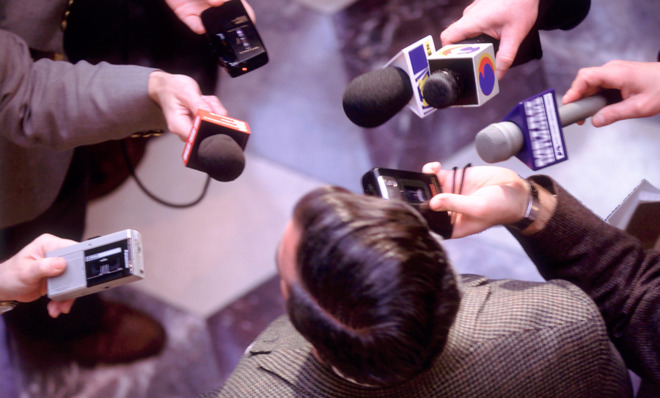Why objective journalism is a crock
Beware anyone who screams about media bias


A free daily email with the biggest news stories of the day – and the best features from TheWeek.com
You are now subscribed
Your newsletter sign-up was successful
One of the most persistent ideas about how journalism should be performed, famously associated with the late David Broder of The Washington Post, is that journalists shouldn't be biased. They should simply report the facts, neutrally and without any ideological coloration. They should be "objective."
Luke Russert of NBC briefly invoked this idea when I criticized his assigning blame to American drug users for gang violence in Latin America:
If you listened to initial words or read my subsequent tweets, I never take a position on the "war on drugs" or legalization. My position was that recreational drug users cannot be absolved of the role they play in perpetuating narcoterrorism that afflicts impoverished communities. I stand by that. [The Week]
As I argued, the policy analysis underlying such a judgment is egregiously mistaken. But there's an interesting attitude revealed here from a journalistic standpoint. Russert claims he doesn't "take a position" on the drug war or legalization, as if that is somehow exculpatory. In line with Broder-style "objectivity," he seems to believe that doing so would be taking sides in a political controversy and therefore out of bounds.
The Week
Escape your echo chamber. Get the facts behind the news, plus analysis from multiple perspectives.

Sign up for The Week's Free Newsletters
From our morning news briefing to a weekly Good News Newsletter, get the best of The Week delivered directly to your inbox.
From our morning news briefing to a weekly Good News Newsletter, get the best of The Week delivered directly to your inbox.
The problem here is that Russert has taken an ideological position on the drug war — he just doesn't realize it. To assign blame to drug users at the very least deflects some of the blame from a wrongheaded and violent U.S. policy; at the worst, it implicitly supports it.
Why would he do that? The answer is found in how "bias" is policed in the media: through political agents. Conservatives are the most obvious examples, whipping up outrage at supposed liberal bias in the media for years in an effort to discredit reporting that hurts their interests. This is one reason why the BBC is curbing its traditional "he said, she said" approach to climate change deniers.
Less visible are actors who support the war on drugs, a long-standing bipartisan project of domestic and foreign policy that naturally comes with a lavishly funded enforcement agency. This creates an enormous political constituency that is outraged at criticism of the status quo. As a result, there's nothing easier than finding a pro-drug war "expert" who is more than willing to comment in your roundtable discussion of the issue.
Drug users themselves, on the other hand, are roundly despised and politically powerless, so they're fair game for moralistic criticism.
A free daily email with the biggest news stories of the day – and the best features from TheWeek.com
Thus we see the problem with "objectivity" as practiced by the press: it merely restricts one's moralizing to subjects without political power (or, as is often the case, foreigners).
Condemning drug users is a bit of a throwback, actually. The most common demonstration of elite ideology reflected in the mainstream press is the seriousness with which economic austerity is treated, despite reams of real-world, observable evidence showing how pointlessly destructive austerity can be. As Ezra Klein (himself quite squirrelly on this point) once observed: "The rules of reportorial neutrality don't apply when it comes to the deficit. On this one issue, reporters are permitted to openly cheer a particular set of highly controversial policy solutions." Chalk that up to policy preferences among the rich and Pete Peterson spending nearly half a billion dollars pushing an austerity agenda.
To be clear, I don't think this is a conscious process. Rather, journalists are often caught up in the mechanism of cultural hegemony — how the ideology of the ruling class comes to permeate society.
This demonstrates the absolute necessity of keeping one's own normative value framework in the front of one's mind. It may be possible to do completely straight reporting (on sports scores, perhaps), but as Freddie de Boer demonstrates, even the simplest political question is going to be inextricably bound up in normative judgments. To deny or avoid this fact is to leave yourself vulnerable to the ideology of far more powerful actors.
Ryan Cooper is a national correspondent at TheWeek.com. His work has appeared in the Washington Monthly, The New Republic, and the Washington Post.
